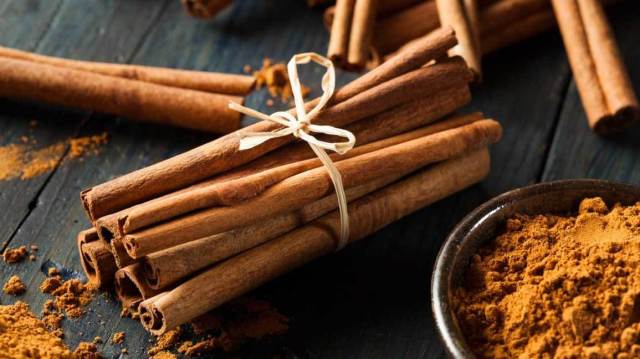Cinnamon is a highly delicious spice.
It has been prized for its medicinal properties for thousands of years.
Modern science has now confirmed what people have known for ages.
Here are 10 health benefits of cinnamon that are supported by scientific research.
1. Cinnamon Is High in a Substance With Powerful Medicinal Properties
Cinnamon is a spice that is made from the inner bark of trees scientifically known as Cinnamomum.
It has been used as an ingredient throughout history, dating back as far as Ancient Egypt. It used to be rare and valuable and was regarded as a gift fit for kings.
These days, cinnamon is cheap, available in every supermarket and found as an ingredient in various foods and recipes.
There are two main types of cinnamon:
Ceylon cinnamon: Also known as "true" cinnamon.
Cassia cinnamon: The more common variety today and what people generally refer to as "cinnamon."
Cinnamon is made by cutting the stems of cinnamon trees. The inner bark is then extracted and the woody parts removed.
When it dries, it forms strips that curl into rolls, called cinnamon sticks. These sticks can be ground to form cinnamon powder.
The distinct smell and flavor of cinnamon are due to the oily part, which is very high in the compound cinnamaldehyde.
Scientists believe that this compound is responsible for most of cinnamon's powerful effects on health and metabolism.
2. Cinnamon Is Loaded With Antioxidants
Antioxidants protect your body from oxidative damage caused by free radicals.
Cinnamon is loaded with powerful antioxidants, such as polyphenols.
In a study that compared the antioxidant activity of 26 spices, cinnamon wound up as the clear winner, even outranking "superfoods" like garlic and oregano.
In fact, it is so powerful that cinnamon can be used as a natural food preservative.
3. Cinnamon Has Anti-Inflammatory Properties
Inflammation is incredibly important.
It helps your body fight infections and repair tissue damage.
However, inflammation can become a problem when it’s chronic and directed against your body's own tissues.
Cinnamon may be useful in this regard. Studies show that this spice and its antioxidants have potent anti-inflammatory properties.

